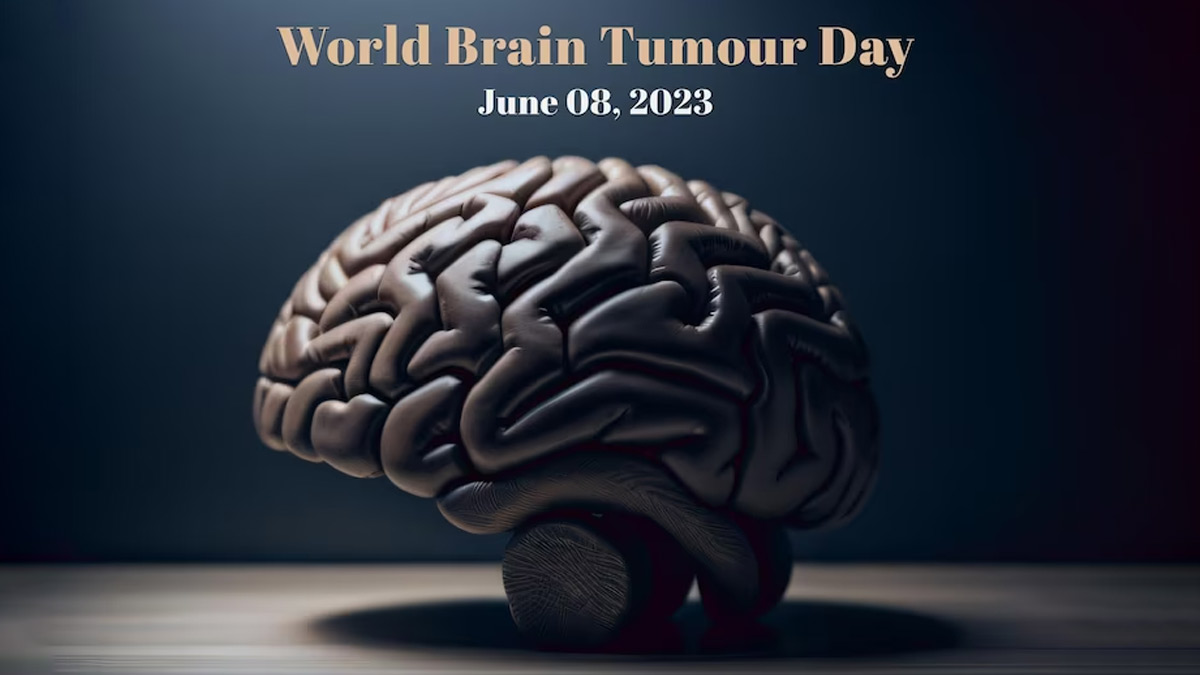
World Brain Tumor Day is observed annually on June 8 to raise awareness about brain tumours and the impact they have on individuals and their families. Brain tumours are a type of cancer that originates in the brain or the surrounding tissues. They can be benign or malignant, and their symptoms can vary depending on the location and size of the tumour. On World Brain Tumor Day 2023, we spoke to Dr Arun Sharma, Senior Consultant Neurosurgeon, Indian Spinal Injuries Centre, New Delhi to learn more about the significance of this day.
Table of Content:-
Prevalence of Brain Tumours
Brain tumours have the potential to impact individuals across various age groups, genders, and ethnic backgrounds. However, certain risk factors may increase the likelihood of developing a brain tumour. These risk factors include exposure to radiation, a family history of brain tumours, and certain genetic conditions.
“The prevalence of brain tumours has been increasing steadily over the years, posing a significant health challenge for our population," said Dr Sharma. He added that India has witnessed a significant rise in the number of brain tumour cases, with an estimated increase of 15% in the last five years alone. "About 40,000 new cases of brain tumours are reported each year in the country now," he stated.
Also Read: What Causes Brain Tumour? Know Symptoms, Treatment Options From Expert
Why Is World Brain Tumour Day Observed?

The purpose of World Brain Tumour Day is to increase awareness about this disease and to encourage people to take action to prevent and treat it. The day is also an opportunity to show support for those who have been affected by brain tumours, including patients, caregivers, and healthcare professionals.
Factors Contributing To Brain Tumour
According to Dr Sharma, "Increased exposure to environmental pollutants and radiation can be cited as contributing factors to the growing problem." He further added that lifestyle changes, such as sedentary habits, unhealthy diets, and high-stress levels have also been implicated in the rising incidence of brain tumours.
Brain Tumour Symptoms
According to Dr Sharma, the symptoms of brain tumour include:
- Headaches
- Seizures
- Vision problems
- Neurological symptoms
- Slurring of speech
- Walking difficulties
- Changes in vision or hearing
Also Read: Why Endoscopic Surgery is The Best Treatment for Brain Tumour?
Brain Tumour Treatment
It is important to note that not all brain tumours are cancerous. Benign tumours are non-cancerous and typically do not spread to other parts of the body. In contrast, malignant tumours are cancerous in nature and have the ability to metastasize to other areas of the body.

Treatment for brain tumours can vary depending on the type, location, and size of the tumour. Several conventional treatment options for brain tumours include surgical intervention, radiation therapy, and chemotherapy. In some cases, a combination of these treatments may be employed.
Way Forward
One of the main goals of World Brain Tumor Day is to educate people about the importance of early detection and treatment. This condition can be difficult to diagnose because its symptoms can be similar to those of other conditions. However, early detection can lead to better outcomes and a higher chance of survival.
Dr Sharma said, "Early detection and prompt treatment are crucial in tackling this growing problem." He added that it is imperative for individuals to undergo regular health check-ups and consult their medical professional if they experience persistent headaches, seizures, vision problems, or neurological symptoms. "You should never ignore the symptoms, such as slurring of speech, walking difficulties, and changes in vision or hearing, at any cost,” he said.
[Disclaimer: The information in this article is provided by a registered medical practitioner. However, we recommend you consult your healthcare provider for a thorough diagnosis and treatment.]
Also watch this video
Read Next
Study Finds 4 Warning Symptoms Of Colon Cancer In Younger People; Expert Stresses On Early Detection
How we keep this article up to date:
We work with experts and keep a close eye on the latest in health and wellness. Whenever there is a new research or helpful information, we update our articles with accurate and useful advice.
Current Version